I casually came into a text wrote in spring 2004, after a meeting with Marc Riboud.
Despite my innocence against the exhibition, the photographs and the quality of prints, the pages that mention some moments of the conference remains in many ways interesting and current. Marc Riboud is an author that I have always deeply estimated, whose simple and sincere words were a wonderful lesson in photography and life that even today I continue to repeat to myself. I then decided to publish the text in its entirety.
It’s five o’clock in the afternoon. I just finished a huge part of programming and I should start a new chapter. I close my Linux session some hours in advance and I go out into open air.
There’s a veiled sun but, after the intense rain of the past days, it’s a new born. It’s hot. Parisiennes have that kind of elegant charm and their naked, white legs put something heavy in the middle of your chest that you can’t swallow.
I took the 67, but there’s traffic jam and I immediately get off, the Maison Européenne de la Photographie is not far away. Every Wednesday, between 5 pm and 8 pm, the access is free. The other day I read on À nous Paris, one of those free dailies distributed at the metro, that there’s a retrospective about Marc Riboud and a meeting with the author at 6 o’clock.
MEP is in a quiet and sunny street of Marais. At its entrance, a stones Zen garden welcomes the visitors. The left half is composed of white stones and the right half of anthracite black, with a long, soft line between the two colors, waves and little mountains around them. Meditation garden, says the caption.
The exhibition is large and complete. One or two-hundred pictures in the most different sizes, from the littlest square that you must lower on to look at, to the blow-up one meters per two. Lots of pictures are from the 50’s, 60’s and 70’s up to now.
There are a lot of pictures from the Orient, with fabulous and unrepeatable subjects. There are also the famous ones, the girls caresses the marguerite against the bayonets, Le peintre de la tour Eiffel… and an inedited reportage about Leeds, that is said to be the saddest city of England, with smoky pictures of chimneys and serial houses, empty and desolated streets. Robert Capa suggested Riboud to go to England, meet girls and learn English. He says he didn’t do anything, but came back with hundreds of pictures. When he heard about the death of Capa, he lost and forgot all of the pictures. They’ve been found last summer, fifty years later, closed in a box.
There’s a good percentage of vintage prints. As everyone knows, the old paper contained more silver than the modern one and blacks were deeper and more intense. Prints are incredible; shadows are intense and large, however details can still be noticed. They are never flat. Then, here and there, some lightened faces, hands or subjects of the composition. As in antique dark and black paintings, where faces were illuminated by the light of a window or candle; and it seemed like it was a strange divinity that donated forms and expressions.
I can’t understand how can you have such contrasted pictures, where light carve only the centers of interests, leaving the rest inside the right atmosphere, which wraps up and creates the background to shine on.
Pictures are often shot without light, inside, with high contrast, besides they do not have burnt lights or flat shadows. They seem paintings, watercolors or prints. And they all scream out loud. They have an exceptional content and message, you can’t be indifferent, they hit your eyes as quick as you put your eyes on, even if you’re not able to look at.
I feel like I have throw my OM2 inside the Seine and dedicating to something else, it doesn’t worth while.
The auditorium is in half-light, with long purple drapes that run down to the floor and comfortable upholster armchair. The old photographer and the interviewer sat down together at the table.
She is thirty, copper hair clearly tinted, glasses, strong lipstick. She talks with monotone voice, using big words that I hardly understand, as French peoples never use them. Probably she studied and learned the lesson by heart, in every detail. She remembers dates and events, she knows locations and publications, she quotes with competence.
He is old as a grandpa, with light and luminous hair. His hands visibly shake and I do not understand how can he still take pictures. When he drinks, he almost drops the water out of his glass. He starts phrases but doesn’t know how to finish; he’s a little bit deaf and slow, relaxed, spontaneous. He is a seducer; he is gallant and admirer. He is funny and humorous, he makes lots of bright jokes and everybody’s laughing. He has us in his hands.
She asks complicated questions, almost untimely, impudent. He makes a witty expression.
-Well, you know… a responsible photographer? Responsibility means justice… architects, doctors… my life has been a long enjoying, qu’ai-je fait depuis soixante-dix ans sinon m’amuser ?
But she insists, quotes prizes and rewards. A photographer like you can’t resume his entire work as pure and simple divertissement.
-Aw, the winning books, yes… I forgot about them couple of months after the prize, I could have never thought about talking of them forty years later, here with you… how can you remember them? Yes, I had something like a school diploma, which I obviously forgot somewhere…
He talks about school, about an eight-days punishment and about how this castigation struck him more than the award she was talking about. But the redhead woman can’t believe it, how can someone enjoy taking pictures and nothing more? How can you live without intellectual rigor, without huge words about this sublime works? How can you live without all the theories she learned in her academy? There must be an identity, style, aim research…
-No, you’re wrong. It can’t be searched. If you search for something you end up finding anything. You just walk and walk and walk, growing up your eye. French wants to put intellectual terminologies everywhere, but eyes are not made to think. Eyes are to look at.
But she doesn’t accept the gags. And she goes on and on, with her extenuating research.
-Look, is like you try to analyze love. How was love? Better before, better after… and so you destroy everything. You loose all the poetry Miss. Because if you ask, then you stop loving, you stop doing it…
Finally she’s beat and Marc Riboud for once doesn’t shake his hand while questioned. He talks about travels and places. He can delight you with what he saw, dark, degraded, poor China. You sit down in your comfortable armchair, dreaming about prostitution, criminality, corruption. You see young people with naked foot pulling rickshaw, rain pouring and poor district in front of your eyes.
-Danger attracts men as belles filles do.
And then he prolongs about his way of shooting and intending photography, which I completely share. Simple and modest. He explains that there’s no country or travel, but there’s a way of seeing things that makes any difference. How and why exercise? No one can say it. It is matter of instants, it is the instant that worth the while. Photography is nothing but catching the moments, even in landscapes, because wind changes and sun goes down. Pictures are not reality, rather are took from an instant of reality. Time, looks, unconscious: this is what creates your stile, more and more. Unconscious must be cultivated to see. The architecture of the image is the starting point, its shape, composition, line and prospective. You should try to compose a story, your own story, in a fantastic but spontaneous architecture.
Eyes are not made to think.
Spontaneous? Not thinking? The girls starts an bright spiel about maximum systems, arts and philosophy… He immediately stops her:
– What are you doing, recite a poem?
She’s defeated, he makes fun of her without pity, gently and entertaining, but he says everything to her face. He says she’s got preconceptions but not him, a person that simply walks around taking pictures of beautiful things, that’s all.
-It is astonishingly simple.
He takes a jetable and shots a picture of us, without even frame.
The sun went down and outside, although the season, there’s a gelid wind. I walk away with excited mood, with pictures and stories in the eyes and memories of Marc Ribaud in my heart. I’m going head lower, almost without looking around, if not for some of those photos made with the mind, and enjoing the city and its people in the evening that turns to the evening.


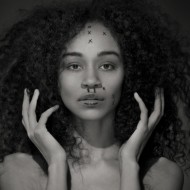
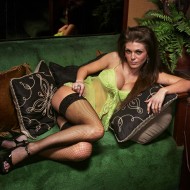
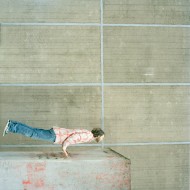

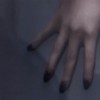
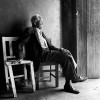
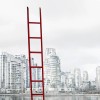

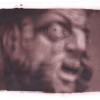
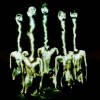

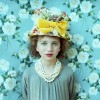
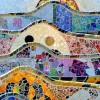
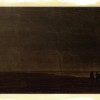
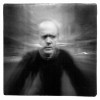
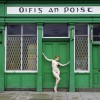
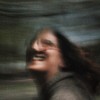
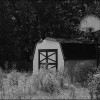

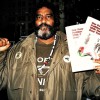

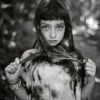
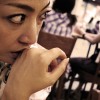
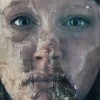
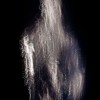
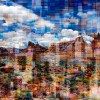
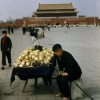
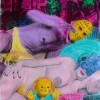






Hi there!
Absolutely, yea! That is right, the eye is not made to think. But, then, thinks get complicated in that you can make words say anything you want them to mean, tha’s called palying on words, somehow or other…
“The eye is not made…” Let is be so for a second. At the same time, as long as you can see, say a painting, or a picture, anything that requires your attention, some process of thinking, and you find peole just elaborating theories, and making endelss analyses…
We musn’t forget that so many things get to us thanks to our sight… because we can see them…
It is definitely not a question of black or white… (even when the picture is in black and white…).
See this video: plenty of colours…
http://www.youtube.com/watch?v=zrIo7cNMD5I
bless the arts…
You can also subscribe to this post comments RSS feed.